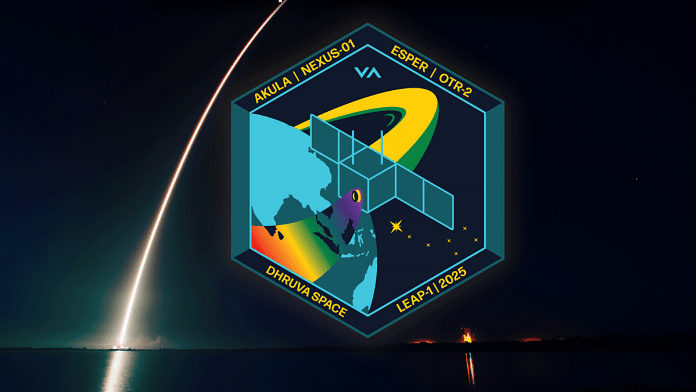New Delhi: Hyderabad-based space tech startup Dhruva Space will launch its first commercial satellite mission LEAP-1 by the third quarter of this year onboard SpaceX’s Falcon-9 rocket, the company announced Monday.
The mission will utilise an indigenously developed P-30 satellite platform, which was space-qualified in January last year in a test demonstration mission carried out with the Indian Space Research Organisation’s PSLV-C58, Dhruva Space said in a statement.
The technology on board will have a range of applications including defence, disaster management, agriculture, mining and environmental management.
The LEAP-1 mission, which utilises P-30 satellite platform, will carry two distinct sets of payloads from Australian companies, Akula Tech and Esper Satellites.
Akula Tech’s Nexus-01 comprises an advanced Artificial Intelligence (AI) module, while Esper Satellites’ OTR-2 mission features a hyperspectral imager.
“This mission represents a collaborative leap forward: combining Akula Tech’s pioneering AI technology with Esper Satellites’ hyperspectral imaging capabilities and deploying them on Dhruva Space’s modular and payload-agnostic P-30 platform,” Dhruva Space said in the statement.
Also Read: What is a LOx leak—snag that has delayed Axiom-4 mission once again
The technology
The AI module, designed by Akula Tech, introduces a new benchmark for on-orbit intelligence. The tech has the capability of onboard data processing and AI/ML (artificial intelligence/machine learning) model retraining using satellite-generated data, offering significant speed advantages for time-sensitive missions.
On the other hand, Esper Satellite’s imager is designed to redefine remote sensing, with its ability to deliver detailed, spectrally-rich earth observation data.
Nishq Ravindranath, Akula Tech’s chief AI officer, explained that its Nexus-01 can optimise and compress any geospatial AI/ML model to run efficiently on the edge of space, supporting applications such as fire detection, anomaly detection, and spectral analysis that provide near real-time insights to government and defence agencies.
“These models will improve themselves over time by continuously retraining on live sensor data. This launch will give flight heritage to five of our distinct software products while enabling the uplink of newer AI/ML models directly to the satellite throughout the mission lifetime,” Ravindranath said in a statement.
(Edited by Ajeet Tiwari)
Also Read: Lucknow boy in space: Shubhanshu Shukla’s school hosts ‘Vyomotsav’ to celebrate Axiom-4 launch






